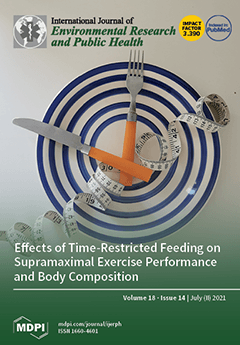Genetic susceptibility has been reported to be an important risk factor for peri-implant disease (PID). The aim of this meta-analysis was to assess the association between
TNF-α and
IL-10 polymorphisms and PID susceptibility. The Web of Science, Cochrane Library, Scopus, and PubMed/Medline databases
[...] Read more.
Genetic susceptibility has been reported to be an important risk factor for peri-implant disease (PID). The aim of this meta-analysis was to assess the association between
TNF-α and
IL-10 polymorphisms and PID susceptibility. The Web of Science, Cochrane Library, Scopus, and PubMed/Medline databases were searched for studies published until 12 April 2021. RevMan 5.3, CMA 2.0, SPSS 22.0, and trial sequential analysis software were used. Twelve studies were included in our analysis. The pooled ORs for the association of
TNF-α (−308 G > A),
IL-10 (−1082 A > G),
IL-10 (−819 C > T), and
IL-10 (−592 A > C) polymorphisms were 1.12, 0.93, 1.35, and 0.77 for allelic; 1.42, 0.95, 3.41, and 0.34 for homozygous; 1.19, 1.88, 1.23, and 0.49 for heterozygous, 1.53, 1.12, 1.41, and 0.39 for recessive; and 1.16, 1.87, 2.65, and 0.75 for dominant models, respectively, with all the estimates being insignificant. The results showed an association between
TNF-α (−308 G > A) polymorphism and the risk of PID in patients of Asian ethnicity (OR = 1.59;
p = 0.03). The present meta-analysis illustrated that
TNF-α (−308 G > A),
IL-10 (−1082 A > G),
IL-10 (−819 C > T), and
IL-10 (−592 A > C) polymorphisms were not associated with the risk of PID, whereas
TNF-α (−308 G > A) polymorphism was associated with an elevated risk of PID in Asian patients.
Full article





